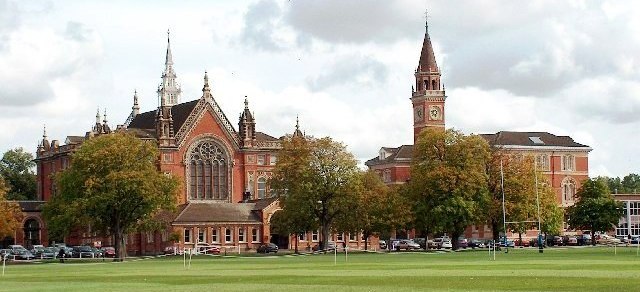|
Dulwich School
Dulwich College is a 2–19 independent, day and boarding school for boys in Dulwich, London, England. As a public school, it began as the College of God's Gift, founded in 1619 by Elizabethan actor Edward Alleyn, with the original purpose of educating 12 poor scholars. It began to grow into a large school from 1857, and took its current form in 1870 when it moved into its current premises. Admission by examination is mainly into years 3, 7, 9, and 12 (i.e. ages 7, 11, 13, and 16 years old) to the Junior, Lower, Middle and Upper Schools into which the college is divided. It is a member of both the Headmasters' and Headmistresses' Conference and the Eton Group. History 1619: The College of God's Gift On 21 June 1619 the College of God's Gift was established in Dulwich by Edward Alleyn with the signing letters patent by James I.Hodges, S. (1981), ''God's Gift: A Living History of Dulwich College'', pp. 3–5 (Heinemann: London). The term "Dulwich College" was used co ... [...More Info...] [...Related Items...] OR: [Wikipedia] [Google] [Baidu] |
Dulwich
Dulwich (; ) is an area in south London, England. The settlement is mostly in the London Borough of Southwark, with parts in the London Borough of Lambeth, and consists of Dulwich Village, East Dulwich, West Dulwich, and the Southwark half of Herne Hill (which is often referred to as the North Dulwich triangle). Dulwich lies in a valley between the neighbouring districts of Camberwell (to the west), Crystal Palace, Denmark Hill, Forest Hill, Peckham, Sydenham Hill, and Tulse Hill. For the last four centuries Dulwich has been centred on the College of God's Gift, also known as the "Old College", which owned most of the land in the area today known as the Dulwich Estate. The College, founded with educational and charitable aims, established three large independent schools in the 19th century (Dulwich College, Alleyn's School and James Allen's Girls' School). In recent decades four large state secondary schools have opened in the area (The Charter School East Dulwich, The Chart ... [...More Info...] [...Related Items...] OR: [Wikipedia] [Google] [Baidu] |
Elizabethan Era
The Elizabethan era is the epoch in the Tudor period of the history of England during the reign of Queen Elizabeth I (1558–1603). Historians often depict it as the golden age in English history. The symbol of Britannia (a female personification of Great Britain) was first used in 1572, and often thereafter, to mark the Elizabethan age as a renaissance that inspired national pride through classical ideals, international expansion, and naval triumph over Spain. This "golden age" represented the apogee of the English Renaissance and saw the flowering of poetry, music and literature. The era is most famous for its theatre, as William Shakespeare and many others composed plays that broke free of England's past style of theatre. It was an age of exploration and expansion abroad, while back at home, the Protestant Reformation became more acceptable to the people, most certainly after the Spanish Armada was repelled. It was also the end of the period when England was a separate r ... [...More Info...] [...Related Items...] OR: [Wikipedia] [Google] [Baidu] |
George Abbot (Archbishop Of Canterbury)
George Abbot (29 October 15624 August 1633) was an English divine who was Archbishop of Canterbury from 1611 to 1633. He also served as the fourth Chancellor of the University of Dublin, from 1612 to 1633. ''Chambers Biographical Dictionary'' describes him as " sincere but narrow-minded Calvinist". Among his five brothers, Robert became Bishop of Salisbury and Maurice became Lord Mayor of London. He was a translator of the King James Version of the bible. Life and career Early years Born at Guildford in Surrey, where his father Maurice Abbot (died 1606) was a cloth worker, he was taught at the Royal Grammar School, Guildford. According to an eighteenth-century biographical dictionary, when Abbot's mother was pregnant with him she had a dream in which she was told that if she ate a pike her child would be a son and rise to great prominence. Some time afterwards she accidentally caught a pike while fetching water from the River Wey and it "being reported to some gentlemen in ... [...More Info...] [...Related Items...] OR: [Wikipedia] [Google] [Baidu] |


